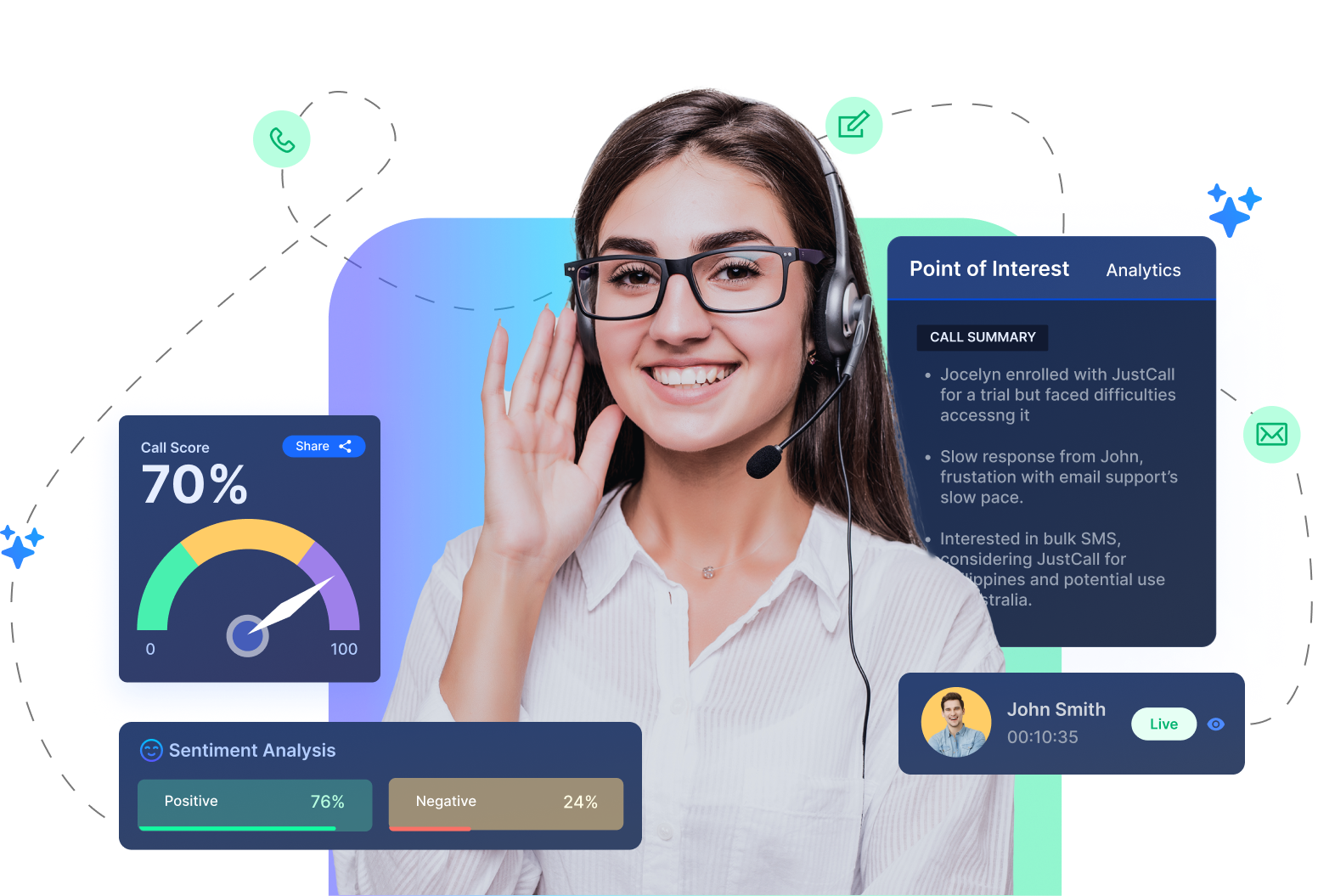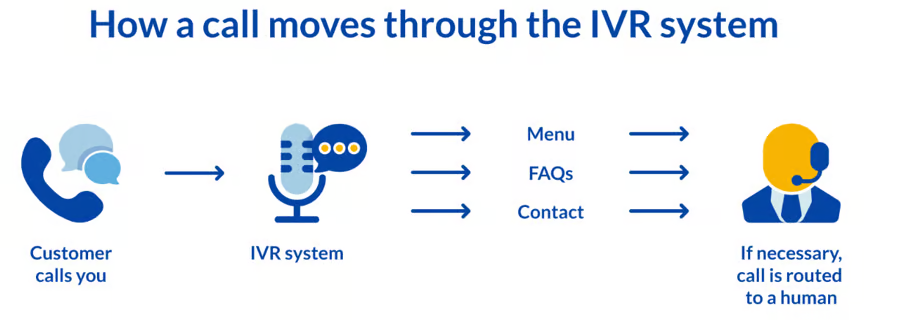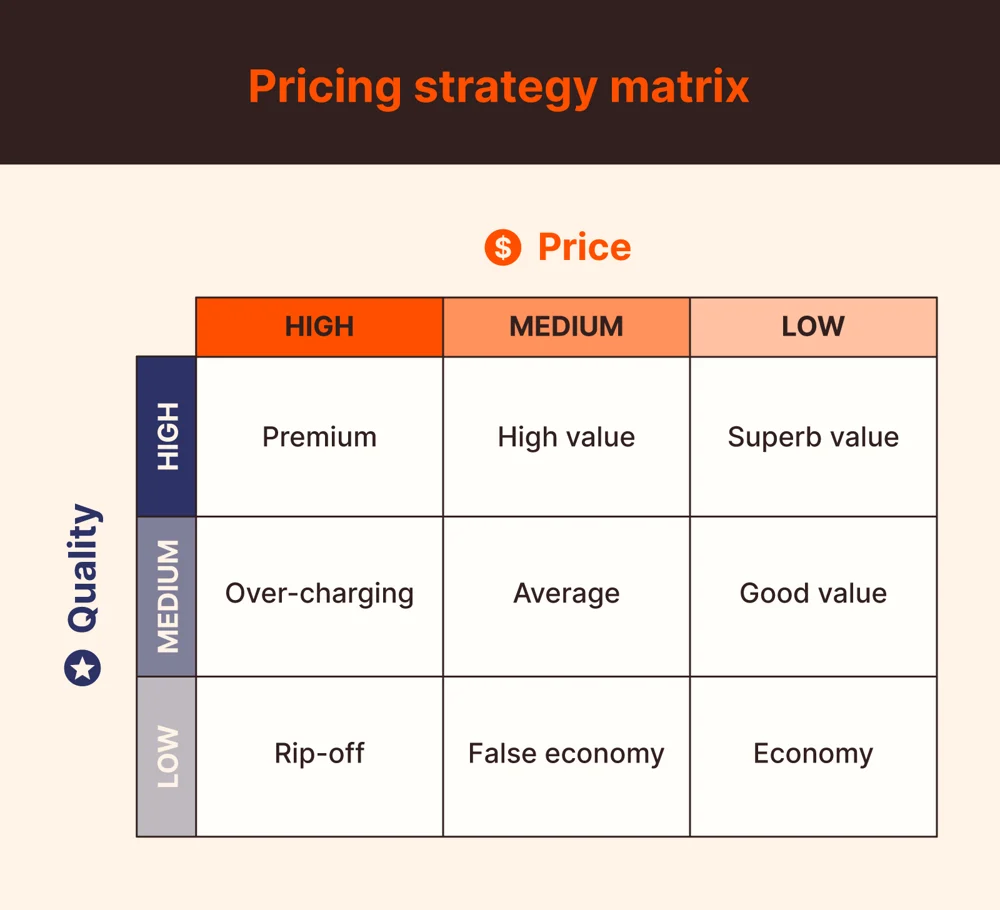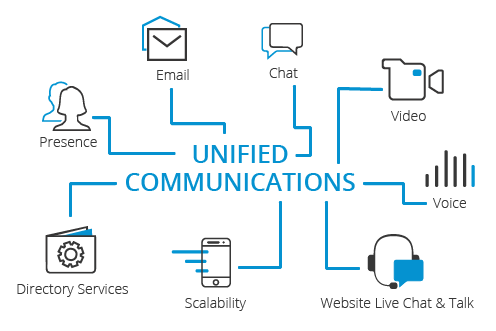Last updated on June 7th, 2025 at 04:23 pm
The way businesses communicate has changed drastically over the last decade. While Skype was once the preferred platform for online calling, it no longer meets the advanced communication needs of modern enterprises. As businesses expand, remote work becomes more prevalent, and customer expectations grow, companies require smarter, more efficient, and AI-powered communication systems to stay competitive.
A feature-rich VoIP (Voice over Internet Protocol) solution is essential for scalability, automation, cost-effectiveness, and security. Businesses need AI-driven tools that go beyond simple voice and video calls, allowing for seamless integration with CRM systems, automated workflows, intelligent call routing, and real-time analytics. Investing in an AI-powered VoIP solution can drastically improve operational efficiency, customer satisfaction, and team productivity.
Table of contents
- What should you Look for when choosing a Modern Business Calling Tool after Skype?
- 11 Must-Have Features in Your Next Business Calling Solution Post-Skype
- 1. AI-Powered Call Analytics
- 2. CRM Integration for Streamlined Workflows
- 3. Intelligent Call Routing & IVR System
- 4. Multi-Device Compatibility
- 5. AI-Driven Automated Call Transcription
- 6. Secure & Encrypted Communication
- 7. Voicemail-to-Email & AI-Powered Follow-Ups
- 8. Virtual Business Numbers for Global Expansion
- 9. Scalability & Cost-Effective Pricing Models
- 10. AI-Powered Call Monitoring & Coaching
- 11. Unified Communication & Collaboration Tools
- Final Thoughts
- Frequently Asked Questions
What should you Look for when choosing a Modern Business Calling Tool after Skype?
A top-tier replacement like FreJun brings more than voice — it includes AI transcriptions, CRM integration, call summaries, and browser/mobile calling. These features help teams communicate better, work faster, and stay on top of every conversation.
11 Must-Have Features in Your Next Business Calling Solution Post-Skype
Choosing the right business calling solution can be overwhelming, with numerous options available. However, the key is to focus on must-have features that provide long-term value and future-proof communication. This article explores 11 critical features businesses should look for when upgrading their calling solution and why making the switch to an AI-powered VoIP system, like FreJun, can significantly enhance business performance.
1. AI-Powered Call Analytics

AI-powered call analytics Leverages artificial intelligence to analyze phone calls, ultimately providing businesses with valuable insights into customer interactions, agent performance, and overall customer experience. As a result, companies can make data-driven improvements. In today’s digital landscape, modern business calling solutions should not only include AI-driven call analytics but also offer deep insights into call quality, customer sentiment, and agent performance. Moreover, this feature allows businesses to:
- Monitor customer behavior trends, such as frequently asked questions and common complaints.
- Identify call patterns, agent efficiency, and customer satisfaction scores.
- Leverage AI-driven recommendations to improve sales and support conversations.
- Track real-time call performance metrics to optimize response times and service quality.

2. CRM Integration for Streamlined Workflows

CRM integration involves connecting CRM software with other business tools and applications to streamline data flow, automate workflows, and create a cohesive ecosystem, ultimately improving efficiency and customer experience. A next-gen business phone system must seamlessly integrate with CRM platforms like Salesforce, HubSpot, and Zoho. Benefits include:
- Automatic syncing of call logs, transcripts, and interaction history to CRM systems.
- AI-driven insights that suggest the best next steps for sales teams.
- Call recording and tagging for better customer segmentation and personalization.
- Enhanced lead tracking and customer follow-up automation, reducing response time.
3. Intelligent Call Routing & IVR System

Intelligent Call Routing (ICR) uses AI and data analysis to seamlessly direct incoming calls to the most appropriate agent or department, thereby optimizing the customer experience and significantly reducing wait times. At the same time, IVR systems provide menu-driven navigation for callers, helping them reach the right destination without unnecessary delays. Furthermore, an AI-powered IVR (Interactive Voice Response) and call routing system work together to ensure calls are directed to the right agents as efficiently as possible. Some of the key benefits include:
- Automated voice-based menu systems that handle routine inquiries without human intervention.
- Advanced call routing based on caller history, intent analysis, and agent availability.
- Multi-layer call transfers to ensure customers get the right solutions faster.
- Skill-based routing, where calls are assigned to agents with the best expertise for the query.
4. Multi-Device Compatibility

Multi-device compatibility refers to the ability of software, systems, or applications to function seamlessly across different devices and platforms, ensuring a consistent user experience. Businesses need flexibility in their communication channels. A modern VoIP solution should:
- Support desktop, mobile, softphones, and VoIP-enabled desk phones.
- Provide a seamless experience for remote, hybrid, and on-the-go employees.
- Offer a unified dashboard where users can switch between devices effortlessly.
- Allow mobile teams to access call logs, customer history, and analytics on the go.
5. AI-Driven Automated Call Transcription

AI-driven automated call transcription uses artificial intelligence to accurately convert spoken words from phone calls into text, thereby offering businesses greater efficiency, improved accuracy, and valuable opportunities to analyze conversations for insights and improvements. In addition, a robust VoIP system should not only include real-time call transcription powered by AI but also enhance overall communication and record-keeping. Moreover, this feature helps businesses by:
- Automatically transcribing calls for compliance, training, and analysis.
- Enabling keyword-based searchability within call records for easy retrieval.
- Providing sentiment analysis to assess customer emotions during calls.
- Generating detailed AI-driven summaries to improve agent efficiency and follow-up processes.

6. Secure & Encrypted Communication

Secure and encrypted communication essentially involves converting data into an unreadable format (ciphertext) that only authorized parties can decipher using a key, thus ensuring privacy and protection from unauthorized access. Given the increasing threats to data security, safeguarding business communication has never been more important. Therefore, a next-gen calling solution should not only provide encryption but also integrate advanced security measures. To achieve this, it should offer:
- Military-grade encryption to protect sensitive conversations.
- Role-based access control (RBAC) to limit internal data exposure.
- Fraud prevention mechanisms that detect and block suspicious activities in real-time.
- Compliance with regulatory standards such as GDPR, HIPAA, and SOC 2 to maintain legal integrity.
7. Voicemail-to-Email & AI-Powered Follow-Ups

Voicemail-to-email technology and AI-powered follow-ups seamlessly streamline communication by automatically sending voicemail messages to your email inbox and efficiently automating follow-up actions, thereby improving efficiency and enhancing customer engagement. In today’s fast-paced business environment, staying responsive is crucial, which is why a feature-rich VoIP system should not only include voicemail-to-email functionality but also integrate AI-driven automated follow-ups. By doing so, it helps businesses to:
- Convert voicemails into text-based summaries and email them to team members.
- Enable AI-based call follow-ups, reducing manual workload.
- Allow businesses to send automated reminders or callbacks for missed calls.
- Improve response time by automatically prioritizing high-value missed calls.
8. Virtual Business Numbers for Global Expansion

Virtual business numbers, operating on cloud technology, enable businesses to establish a local presence in multiple countries without physical offices, facilitating global expansion and cost-effective communication. Businesses looking to expand globally should opt for virtual phone numbers, which offer:
- The ability to set up local numbers in different countries without a physical presence.
- Smart call forwarding to ensure regional customers reach the right representatives.
- Cost-efficient communication by minimizing international call rates.
- Support for multiple local area codes to establish regional trust with customers.
9. Scalability & Cost-Effective Pricing Models

For scalable and cost-effective pricing, consider tiered, usage-based, or freemium models, each catering to different customer needs and budgets, while also allowing for flexibility and potential for growth. A scalable VoIP solution must provide flexible pricing plans that align with business growth. Key advantages include:
- Pay-as-you-go pricing that adjusts based on actual call usage.
- Options to scale up or down without needing additional hardware.
- Transparent billing with detailed usage analytics to optimize costs.
- Volume-based pricing for businesses handling large call volumes, reducing per-call expenses.
10. AI-Powered Call Monitoring & Coaching
AI-powered call monitoring and coaching uses artificial intelligence to analyze customer interactions, identify areas for improvement, and provide real-time guidance to agents, ultimately enhancing customer experience and improving agent performance. Managers need tools to monitor and improve agent performance. AI-driven call monitoring offers:
- Live call supervision with the ability to whisper guidance to agents.
- AI-generated performance reports highlighting areas of improvement.
- Custom coaching recommendations based on call sentiment and outcomes.
- Automated tracking of key performance indicators (KPIs) to improve agent effectiveness.
11. Unified Communication & Collaboration Tools

Unified Communication & Collaboration (UC&C) tools effectively integrate various communication channels, such as voice, video, messaging, and data sharing, into a single interface, thereby enabling seamless and efficient communication and collaboration. As a result, businesses can enhance productivity, improve teamwork, and streamline workflows. Moreover, by consolidating multiple communication methods, UC&C tools help ensure a more connected and responsive work environment.
A modern VoIP system should offer a unified communication suite that includes:
- AI-powered video conferencing that adjusts quality based on bandwidth.
- Seamless integrations with team collaboration tools like Slack and Microsoft Teams.
- Centralized storage for call logs, chat messages, and meeting notes.
- Task automation for follow-ups, meeting scheduling, and file-sharing within a single dashboard.
Final Thoughts
As businesses move beyond Skype and outdated calling systems, transitioning to an AI-powered VoIP solution is no longer just an option—it is a necessity. The modern workplace demands flexible, scalable, and intelligent communication tools that can handle high call volumes, automate workflows, and provide actionable insights. Companies that continue to rely on basic communication platforms risk inefficiencies, security vulnerabilities, and lost business opportunities.
By adopting a feature-rich VoIP platform, businesses can experience cost savings, improved customer engagement, and enhanced team collaboration. Features such as AI-driven analytics, automated call routing, CRM integration, and multi-device compatibility enable companies to scale effortlessly while boosting productivity and efficiency.
Among the top VoIP solutions available today, FreJun stands out as a leader in AI-powered business communication. With its cutting-edge call management tools, real-time analytics, advanced security, and seamless CRM integrations, FreJun offers businesses an unparalleled communication experience.
For organisations looking to future-proof their calling infrastructure, now is the perfect time to invest in an AI-powered VoIP system that provides the flexibility, security, and automation required to succeed in a digital-first world.
Upgrade your business communication with FreJun and experience the future of VoIP calling!
Further Reading: How to Avoid Spam Labeling in the Middle East
Frequently Asked Questions
Start with browser-based calling. FreJun offers web and mobile access — no app dependency or desk phones required.
Yes. FreJun tracks and logs every call automatically, reducing manual work and boosting accuracy.
Absolutely. FreJun integrates with top CRMs to connect call data directly to your customer records.
FreJun provides real-time summaries and action points, so your team never misses what’s important.
Yes. FreJun runs seamlessly on both mobile and desktop for remote or hybrid teams.
Definitely. FreJun comes with a central admin dashboard for permissions, monitoring, and compliance.
FreJun uses AI for call transcription, speaker identification, and smart insights — making every conversation more productive.
